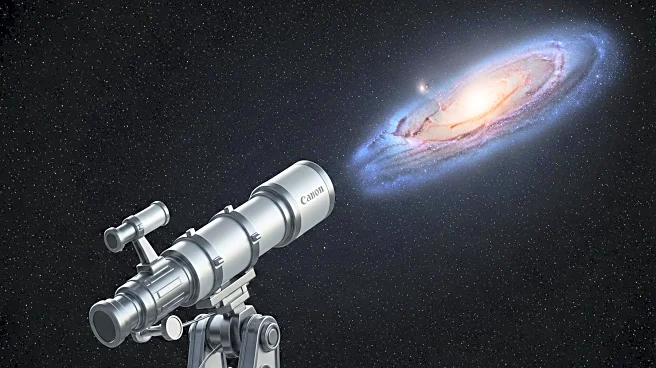What is the story about?
What's Happening?
Recent data from dark-energy observatories indicate that the universe may end in a 'big crunch' at approximately 33 billion years old. This conclusion, reached by Cornell physicist Henry Tye, suggests that the universe will expand to its peak size in about 11 billion years before contracting. The findings challenge previous beliefs that the universe would expand indefinitely. The research is based on the cosmological constant, which new data suggests may be negative, leading to eventual contraction.
Why It's Important?
The potential for a 'big crunch' scenario alters the understanding of the universe's fate, impacting cosmological theories and models. This development could influence future research in astrophysics and cosmology, as scientists seek to understand the implications of a contracting universe. The findings also highlight the importance of dark-energy research in shaping the understanding of the universe's evolution and ultimate destiny.
What's Next?
Further observations and data collection from dark-energy observatories are expected to refine the understanding of the universe's fate. Scientists will continue to analyze the cosmological constant and its implications for the universe's expansion and contraction. The ongoing research may lead to new insights into the fundamental forces and particles that govern the universe.

















